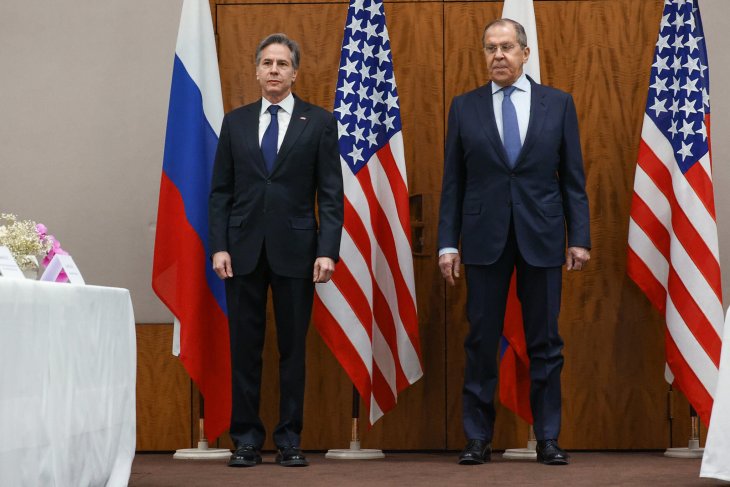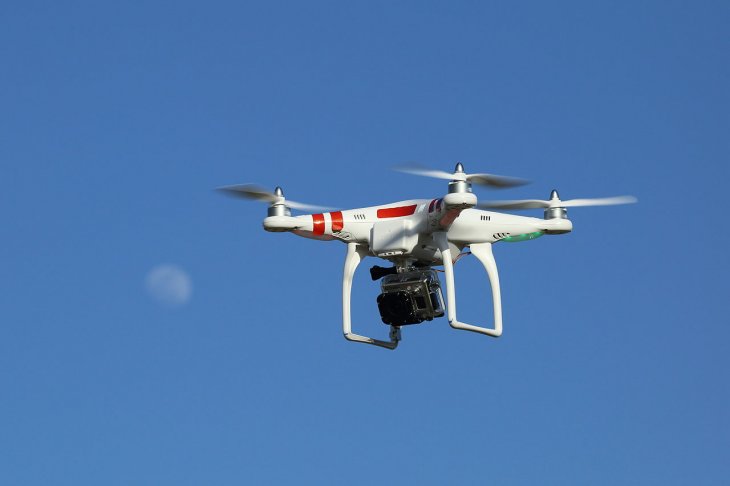We examined more than 200,000 records in 15 African countries.
Good Reads: Energizing Comparative Environmental Politics & Political Economy
 Green Curses project member Stacy VanDeveer has written a book review of three new, exciting books in the fields of comparative environmental politics and comparative political economy. The three books bring together the study of energy, the environment, and political economy, looking at energy transitions in middle-income countries, firms’ cross-border collaboration, and the emergence of local resistance to energy projects. You can read the review here.
Green Curses project member Stacy VanDeveer has written a book review of three new, exciting books in the fields of comparative environmental politics and comparative political economy. The three books bring together the study of energy, the environment, and political economy, looking at energy transitions in middle-income countries, firms’ cross-border collaboration, and the emergence of local resistance to energy projects. You can read the review here.
Hope and Despair in the Indus River Delta: Navigating the Treacherous Waters of Capitalism, Climate Change and Politics
Concern over the impacts of climate change is rising globally, and often seen in relation to migration. Drawing on MIGNEX fieldwork in Keti Bandar, a Pakistani fishing port in the Indus river delta, we sketch observed climate change impacts and scope for local action. Lost Glory What is today a fishing port that has seen… Read more »
Putin’s Blackmail-War in Ukraine Continues Under Diplomatic Cover
The guns have so far remained silent on the snow-covered Russian-Ukrainian border, but there is certainly no peace there; a rather unusual war is in progress. It is unlike any other wars waged by Russia under the lengthy rule of President Vladimir Putin, who began his first presidential term with a war in Chechnya that was officially defined as a counter-terrorist operation.
The present confrontation goes beyond Russia’s track record of “hybrid” attacks, like its interference in the 2016 presidential elections in the United States, or its limited foreign interventions, like the ongoing mission in Syria.

Secretary of State Antony J. Blinken and Russian Foreign Minister Sergei Lavrov meeting in Geneva.
Photo: Russian Foreign Ministry / Flickr
The stakes are far higher than in all of Moscow’s previous experiments with power projection, as if Putin has concluded that the time has come to resolutely challenge his main adversaries — the US and North Atlantic Treaty Organization (NATO).
This unprecedented challenge can perhaps be described as a “blackmail-war”; and while the key target of these military threats is Ukraine, Russia’s demands are addressed first and foremost to US President Joseph Biden, whom the Kremlin sees as bedeviled by domestic troubles and frustrated with the need to manage crises in Europe that preclude him from being able to concentrate on the confrontation with China (Russiancouncil.ru, January 19).Read More
Book review: Radical Secrecy: The Ends of Transparency in Datafied America
by C. Birchall, Minneapolis, University of Minnesota Press, 2021, 244 pp. ISBN 978-1-5179-1043-3 Why is it that debates about trade-offs between supposed binary opposites of secrecy and transparency, and between secrecy and security, so often feel unsatisfying? As Clare Birchall acutely points out in her new book, Radical Secrecy: The Ends of Transparency in Datafied… Read more »
When Terrorists Mobilize Law: Reflections on justice and closure after July 22
During January 18-21, the Norwegian terrorist Anders Behring Breivik will have his request for parole adjudicated by the Telemark District Court over a four-day trial.
In 2012, he was sentenced to preventive detention for a term of twenty-one years and a minimum period of ten years for the July 22, 2011 terror attacks. He was convicted for the murder of 77 individuals – most of them youth and children – and for the bombing of the Government quarter. He has now served the minimum 10-year sentence.
The case itself will be litigated in a provisional court room located in the gymnastics hall at the Skien prison. The state prosecutor will seek to place Breivik in indefinite preventive detention on the grounds that he remains a danger to society.

The walls of Skien Prison, where a provisional courtroom is set up for Telemark District Court. Photo: Adrian Lillefjære
While there is no chance that Breivik will succeed, for survivors and the bereaved, just being faced with the prospect of another court case is both terrifying and provocative.Read More
Even at Times of Crisis, Children Must Go to School
The most recent debate concerning school closures has focused on vulnerable children and how school closures will cut them off from a place of safety. While the Children’s Ombudsperson and others are concerned about the impact of school closures on the most vulnerable children, others express doubts as to what extent school is, or should be, a refuge for them.

Illustration: Pixabay
Recently, the Conservative politician Kristin Clemet wrote that too much has been made of the concept “vulnerable” and that school cannot replace family to protect vulnerable children. Others suggest that people who have other motives for wanting to keep schools open are exploiting vulnerable children to support their case.Read More
Can we predict climate change impacts on future peace and security?
In the same manner as societies are developing policies to strike the optimal balance between public safety and social and economic cost of COVID-19, the international community is negotiating strategies to address climate change. However, unlike lockdowns, vaccination, and other responses to the ongoing pandemic, risk-reducing effects of alternative climate policies cannot be observed in… Read more »
Giant Fake Ladybugs on Tanks? The Future of Warfare in the Age of Artificial Intelligence and the Need for Ethics
In September this year, Chief Software Officer for the U.S. Air Force Nicholas Chaillian, unexpectedly resigned.
The reason for his resignation? To protest the slow pace of technological transformation taking place in the U.S. military, and where he argued the U.S. had already lost the race for AI dominance to China.
In today’s competitive climate around AI development, many warn about the consequences of being reckless in developing and using these technologies in warfare. However, fully understanding what AI looks like in warfare is complex, which makes it even more challenging when thinking about the potential ethical and legal implications of these technologies.

U.S. soldier uses the tactical robotic controller to control an expeditionary modular autonomous vehicle.
U.S. Army photo by Sgt. Marita Schwab
Artificial Intelligence (AI) in itself is a broad concept, referring to types of software that can enable machines to function without direct human intervention.
Due to the broad umbrella of technologies that fall under AI, it is hard to grasp the full scope and degree of impact that these technologies will have in a military setting. Much of the debate and focus has been on autonomous weapons systems (AWS), and whether these technologies should be banned. AI’s role in military preparedness and operations is however considerably broader than AWS, as AI supports decision-making in a variety of ways.
Understanding how AI can contribute to more effective – and safer – military operations is of increasing importance as its use becomes more widespread. In this respect we must not sidestep careful consideration of the attendant ethical and legal challenges.Read More
Disharmony in Harmonized EU Rules
In 2019, the European Union (EU) passed regulations for the aviation safety of civilian drones. They are aimed to foster innovation and ensure the safe integration of drones, of all sizes, into European airspace.
This move was made to also harmonize drone rules throughout the EU as the previous framework only covered drones weighing over 150 kilograms, which led to fragmentation of rules in different states.
Yet, these ‘harmonized’ rules fall short in harmonizing regulators, which remains a general problem for consistent EU regulations.

Civilian drone with a GoPro camera. Photo: Don McCullough / Wikimedia Commons
In drone regulations, state regulators are empowered to either allow or reject certain innovative operations, such as urban delivery by small drones. These operations fall under the so-called ‘Specific’ category, in the language of regulations, and can only be performed if the state authority allows it.
